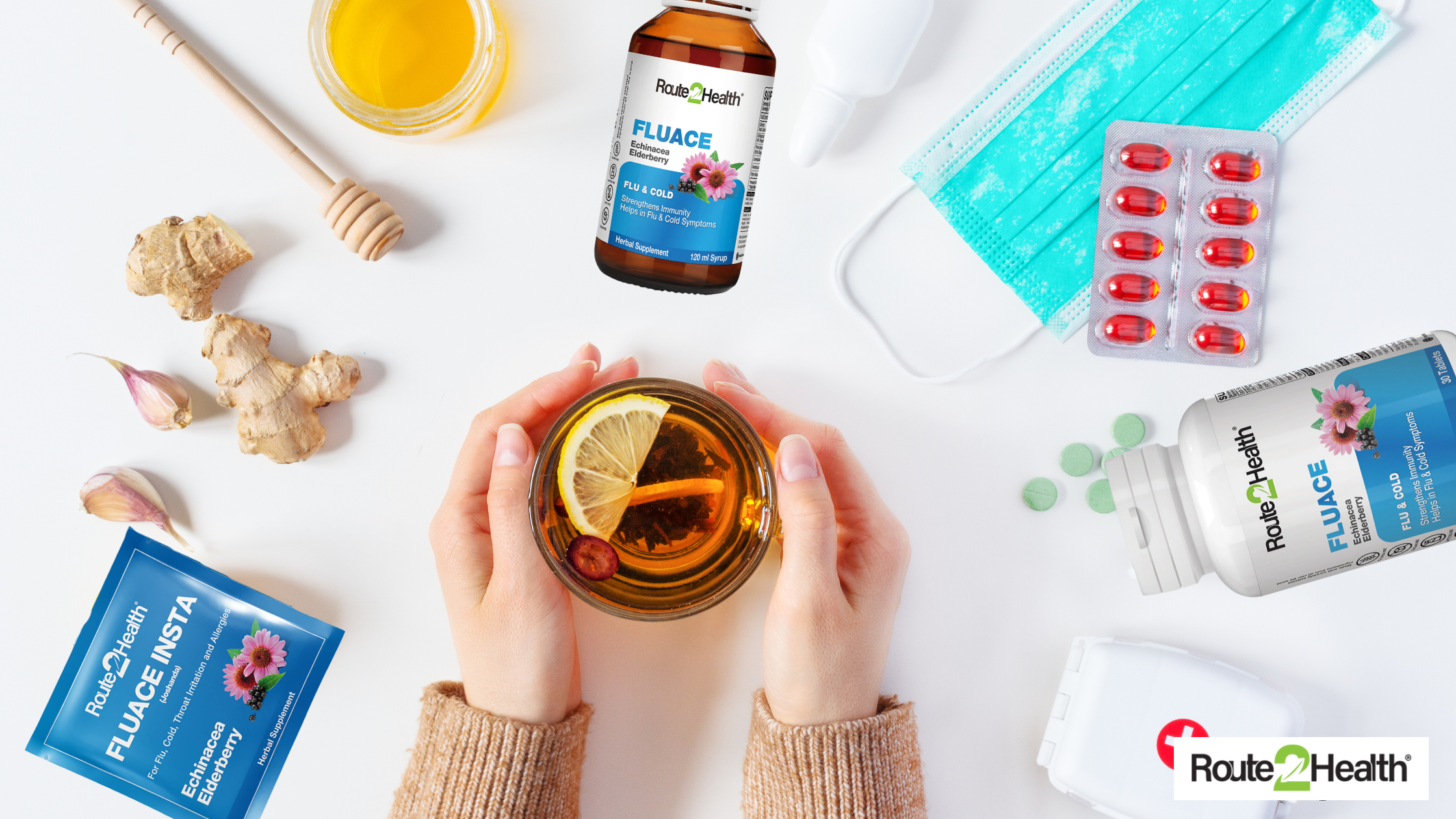
The Importance of Good Nutrition for Healthy Ageing
Ageing is a natural part of life, but that doesn't mean you have to let it slow you down! While you can't stop the clock from ticking, you can certainly make the most of the time you have by taking care of yourself. And what's one of the best ways to do that, you ask? Good nutrition! That's right, what you eat can have a huge impact on how you age. From maintaining your energy levels to keeping your brain sharp, good nutrition is the key to better ageing. So, grab a healthy snack and settle in as we explore the importance of good nutrition for healthy ageing.
You must be wondering why can't you eat like you used to. Well, your nutrition requirements change as you age. This is because your metabolism changes and other body functions change too. To cope with these changes, you need to follow a complementary diet that ensures optimum health
Some Ways Good Nutrition Helps You Age Better.
Helps Maintain a Healthy Weight
With your increasing age, it is all the more important for you to maintain a healthy weight. Your bones are no longer strong enough to carry the extra load around. Neither are they sturdy enough to support your body without the extra muscle to help them. Being overweight and underweight at an older age can be harmful.
You might be taking medications that have weight loss or gain as a side effect, leaving you only to your diet to help. Having the right amount of calories, fat, carbohydrates, and proteins will help you maintain not just the right weight but also the right muscle-to-fat ratio.
You must include whole grains, lean proteins, fruits, and vegetables in your diet. Look for nutrient-dense foods rich in antioxidants, polyphenols, probiotics, prebiotics, and fibres.
Supports Cardiovascular Health
A person's heart and blood vessels can change as they age. For instance, as you get older, your heart can't beat as fast during physical activity or during times of stress as it used to.
Physical changes, like reduced blood circulation that happens with age may increase the risk of heart disease. The buildup of fatty deposits in the walls of arteries over many years is one of the main causes of heart disease. Fortunately, you can reduce, avoid, or reverse your risk by doing certain things.
According to research, special diets like Mediterranean and vegetarian diets are quite beneficial for cardiovascular health. A heart-healthy diet includes whole grains, fruits, vegetables, and legumes. Excessive consumption of meat and processed foods is discouraged if you want to improve your cardiovascular health.
Another important nutrient that ensures optimum cardiovascular health is Omega 3. For the past 20 years, the American Heart Association (AHA) has recommended omega-3 fatty acids from fish and fish oil. It reduces cardiovascular events in people who already have cardiovascular diseases, such as heart attacks or strokes (CVD).
Improves Metabolic Function
Metabolism is defined as all the biochemical processes that take place inside your body to maintain life. As you age, your metabolism will not be as good as it once used to be.
As per various studies, your body does not metabolise nutrients from food as efficiently as it should, which can cause blood glucose levels to rise, especially after a meal. And as you age, anabolic processes such as muscle protein synthesis become less efficient, making it more difficult to gain muscle mass. According to research, adults who do not exercise lose an average of 0.4 pounds of muscle mass per year after the age of 50.
But don't worry! A variety of healthy lifestyle strategies have been scientifically proven to mitigate some of these effects. Incorporate healthy lifestyle habits into your daily routine, and the results can be dramatic.
Eat a variety of nutrient-dense foods from each food group to fuel a healthy metabolism. Processed foods should be avoided because they are a hidden source of added sugar, sodium, and ""empty"" calories. Consuming fiber-rich foods and drinking plenty of water may benefit metabolic health by aiding digestion and lowering blood sugar and cholesterol.
Helps Control Blood Pressure
High blood pressure, or hypertension, is a major health problem common in older adults. The vascular system, or network of blood vessels in your body, changes with age. Arteries stiffen, increasing blood pressure. This is true even for people who follow heart-healthy habits and have a healthy body. High blood pressure, also known as ""the silent killer,"" usually does not cause visible or palpable symptoms of illness. Although nearly half of all adults have high blood pressure, many are unaware of it.
Good nutrition as you age can help you keep your blood pressure in check. A DASH (Dietary Approaches to Stop Hypertension) diet is a really good way to control hypertension. The diet encourages vegetables, fruits, grains, and oils. It restricts salt intake, which increases blood pressure. As you age, your body and blood pressure become more sensitive to salt.
Keeps Your Brain Healthy
Although increasing age is considered to be synonymous with increasing wisdom, your cognitive function declines as you age. As you age, it is important to maintain a healthy diet and lifestyle to keep your brain function intact. As with other muscles in the body, the brain requires protein, healthy fats, and hydration to function properly.
According to research, fish oil may be beneficial if you have mildly diminished brain function or are diagnosed with depression. It is essential that the omega-3 fatty acids EPA and DHA are consumed throughout life for normal brain function and development. Low DHA levels in the blood are associated with smaller brains in older adults, accelerating brain ageing.
Unfortunately, there is no evidence that fish oil works in people with Alzheimer's. But regular intake of omega-3 fatty acids can slow down brain ageing and keep your brain function normal for longer.
Strengthen Immune System
Your immune system becomes less efficient as you age, making you more susceptible to infections and illnesses. Good nutrition can play a vital role in strengthening the immune system, especially as we get older.
A diet rich in fruits, vegetables, whole grains, lean proteins, and healthy fats can provide essential vitamins and minerals that support a healthy immune system. Studies show that vitamin C, vitamin D, zinc, and selenium are known to support immune function.
On the contrary, a diet high in processed foods, unhealthy fats, and added sugars can increase inflammation in the body. Chronic inflammation can impair immune function and increase the risk of age-related diseases.
A healthy gut microbiome is crucial for a strong immune system. A diet rich in fibre, fermented foods, and prebiotics can support the growth of healthy gut bacteria, which in turn can support the immune system. An overall healthy diet rich in antioxidants can reduce oxidative stress, which is a process that can damage cells and impair immune function.
Promotes Good Digestion
A healthy digestive system is like a party in your tummy, and good nutrition is the ultimate party planner! As we age, our digestive system starts to slow down, making it harder to break down food and absorb nutrients.
Some researches link poor digestive health to increased mortality in older people. But fear not because good nutrition is here to save the day! Fibre-rich foods like fruits, vegetables, and whole grains are like the life of the party, keeping things moving along and preventing constipation. Probiotics found in yoghurt, kefir, and other fermented foods are like the party guests that keep things balanced and under control. And last but not least, drinking plenty of water is like having a bartender on standby, keeping everyone hydrated and the party going strong.
So if you want to keep the party in your tummy going strong as you age, make sure to fuel it with good nutrition!
What To Do Next?
Now that you know the importance of good nutrition through ageing, it's time for you to take the next necessary step. That would be to improve your diet and take the essential supplements. A healthy, well-balanced diet could be your key to healthy ageing. Unfortunately, in today's time, food alone can not do much for you. You'll have to rely on supplements to improve your health and well-being.
Hicrom Plus is one such supplement that promises better ageing. It contains Coenzyme Q10 (CoQ10), an antioxidant your body produces naturally. As you age, your production of CoQ10 declines, and additional supplement is often beneficial. Supplementing with CoQ10 may provide numerous benefits for older people, including improved energy levels, heart health, and brain function.
This heart health supplement also contains chromium and L-carnitine. Chromium is a mineral that plays a crucial role in glucose metabolism. It also helps to improve lipid metabolism, promote weight loss, and reduce inflammation.
On the other hand, L-carnitine is an amino acid important for energy metabolism. It has also been shown to reduce inflammation, improve heart health, and support brain function.
In Conclusion, a healthy diet with fibres, probiotics, prebiotics, and omega-3 fatty acids in conjunction with a supplement like Hicrome Plus is your key to healthy ageing.
FAQs
- What is the function of coenzymes?
Coenzymes are organic molecules that are necessary for the proper functioning of enzymes. Coenzymes are not enzymes themselves, but they work together with enzymes to support various metabolic processes in the body.
- What do coenzymes do?
Coenzymes help enzymes to do their job by transferring chemical groups or electrons between different molecules. They are essential for many important chemical reactions in the body, including those that produce energy.
- What does metabolic age mean?
Metabolic age is a term that refers to the estimated age of a person's metabolism based on various factors such as weight, body composition, and other metabolic markers.
- How to lower metabolic age?
You can lower your metabolic age by maintaining a healthy diet and lifestyle.





















































